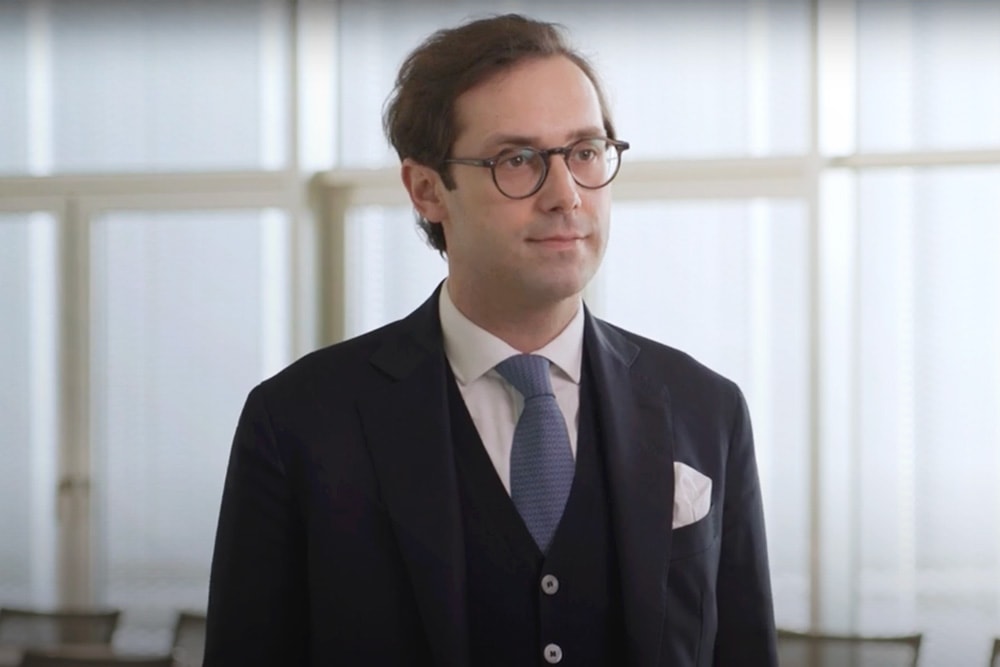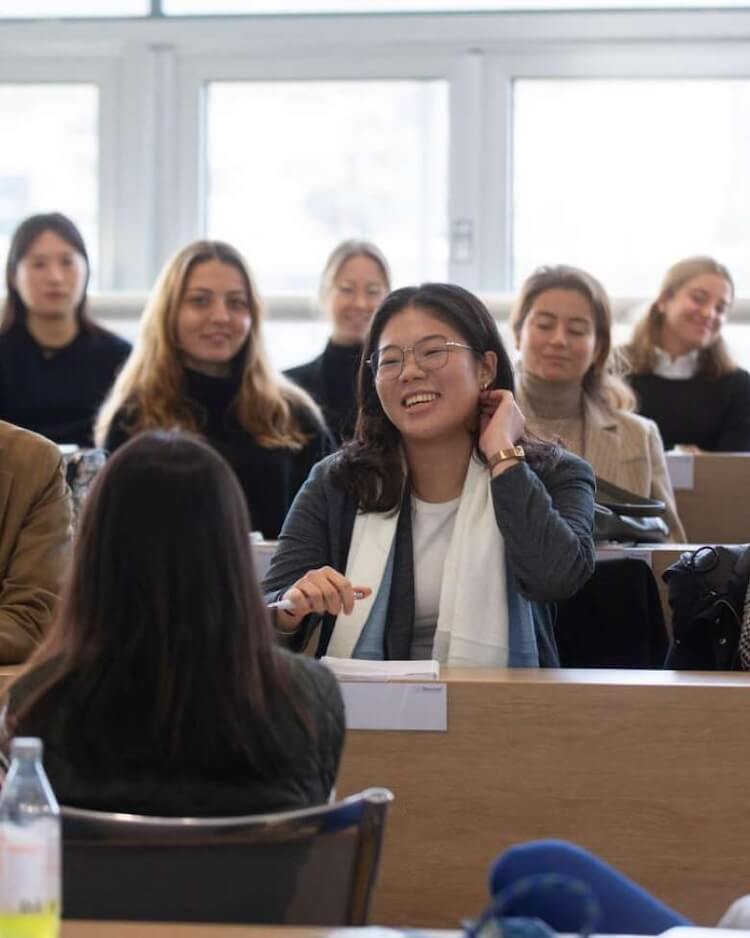
Master in Arts Management and Administration
The art of managing the arts.
Leveraging Italy’s excellence in cultural heritage and artistic production, the Specialized Master in Arts Management and Administration (MAMA) is a full-time 1-year program in English, offering 70 ECTS/CFU credits, designed for talented students from all over the world, with international vocation profiles and a passion for the arts.
MAMA aims to support artistic innovation and cultural development worldwide, by strengthening the leadership and management skills required for arts organizations to thrive, and for your career to flourish in a wide range of organizations operating in the arts sector.
Discover MAMA's specific qualifying goals.
Partnerships
Many institutions in the fields of Heritage and Performing Arts are participating in the MAMA program with lectures, company visits, research projects, and internships for students. The strong relationship between MAMA and its partners started with ten founding partners, and the network has increased month after month with new connections and agreements.
Founding partners










Words from the Director


Who is it for
MAMA is the right Master for you if:
- You are passionate about arts and culture and are looking for a well-rounded managerial preparation, with a specialized focus on the art world and on the cultural industries.
- You want a career as a professional, manager, consultant, or entrepreneur in artistic and cultural fields.
- You want to improve your managerial expertise in one of Europe’s leading schools of management.
- You want to get in touch with top Italian and international arts organizations and their leaders.
MAMA 2025-26
Why MAMA
Highlights
Calendar and contents
12th Edition 2026-2027
MAMA provides a strong foundation in management, combining practical, creative, and professional skills within a dynamic, multidisciplinary, and internationally focused environment.
What sets MAMA apart is the Grand Tour through Italy’s cultural capitals and hands-on internships with top partners and institutions.
Opening Week
Kickstart MAMA with a warm welcome from faculty, staff, and alums, introducing you to the school, program, your classmates, and the vibrant cultural scene of Milan and Italy.
Opening Ceremony – Celebrate the start of your journey with SDA Bocconi’s leadership and community.
- Know your school – Explore SDA Bocconi, Bocconi University, and the MAMA curriculum.
- Know yourself & your class – Connect with your international peers and share experiences.
- Know your career – Meet key professionals who will help shape your future.
- Know Milano & Italy – Discover the cultural and artistic richness of your new home.
Core courses
Such courses are aimed at developing the managerial and business knowledge and skills to work as a manager in the world of arts and heritage. You will address a wide range of topics, from foundational business to marketing and media-related issues, from art industry-focused to key additional topics such as fundraising, law, entrepreneurship, and consulting.
- Introduction to Arts Management
- Financial Analysis
- Cultural Policy
- Strategic Management for Non-Profit Organizations in the Arts
- Arts Organization
- Powerful Communication: from Synthesis and Storytelling to Public Speaking
- Cost and Performance Management in Arts Organizations (1 & 2)
- Marketing and CRM in the Arts
- Italian Excellence
- Communication in the Arts
- Arts and Digital Media
- Social and Economic Impacts in the Arts
- Market Research in the Arts
- Funding & Fundraising in the Arts
- Place Branding & Tourism Destination Strategy
- Art Finance
- Business Planning & Creative Entrepreneurship
- Consulting Management for the Arts
- Performing Arts Management
- Heritage Management
Soft Skills and Context Seminars
As a cultural manager you need specific soft skills and knowledge in order to bring value and success to your organization. The aim of the MAMA seminars is to strengthen your leadership and communication in order to support your personal and professional growth. Seminars are held throughout the year and include the following topics:
Strategic Heritage Management
Business Ethics & Diversity, Equity and Inclusion
Concentration Track in Art Markets and Finance
This innovative track in Arts Markets and Finance prepares future arts leaders with specialized skills to navigate the global art market. It offers a comprehensive understanding of market dynamics, including taste trends, cultural influences, and the roles of galleries and auction houses. The program emphasizes legal and ethical considerations such as authenticity, provenance, copyright, and cultural heritage, along with institutional and regulatory frameworks. Participants explore emerging trends like financialization and tokenization (e.g. Non-Fungible Tokens), and gain insights from key market players—collectors, investors, advisors, and more—to effectively understand and operate within the evolving international art world.
- The program consists of two learning modules for a total of 12 full days. Each module consists in a week (Monday to Saturday from 8:30 to 4pm).
- Extra visits or trips to Art Fairs could be organized on top of the classes (i.e. in other days) and will be elective.
- The Concentration Track in Art Markets and Finance is also offered as an Open Executive Program.
MAMA Grand Tour in Italy
Immerse yourself in the world of art management by joining a unique 10-day Grand Tour Experience, aimed at offering a managerial perspective of Italian best practices in the arts sector. Hosted by some of the most relevant Italy-based cultural institutions - such as Vatican Museums, Pompei Archeological Site, Teatro San Carlo di Napoli, Museo Opera del Duomo di Firenze, etc. - the MAMA Grand Tour offers participants the opportunity to learn from managers in the field and internalize the skills and knowledge acquired throughout the year.
Internship or your own start-up: turn ideas into action
At MAMA, you won’t just study the arts—you’ll shape their future. Choose between a high-impact internship solving real-world challenges with leading institutions, or launch your own start-up under expert faculty guidance.
Internships last a minimum of three months (June–December) and let you apply cross-disciplinary knowledge to drive innovation in the arts. You can also find your own internship tailored to your career goals—just get it approved with a detailed proposal.
Whichever path you choose—internship or entrepreneurial venture—you’ll showcase your project in a final presentation before graduation and submit a written report demonstrating your impact and insights.
MAMA’s network of partners and institutions actively selects interns for dynamic field projects.
A comprehensive learning experience
Faculty

Arts and culture are key to shaping individuals and communities. That's why MAMA trains students to tackle the sector’s challenges with innovative, effective solutions, guided by expert faculty and inspired by a diverse, passionate and dynamic community.
Italy, rich in beauty and complexity, is MAMA’...
Admissions
We seek highly motivated candidates with clear career goals, a commitment to excellence, and a passion for the arts. Our rigorous selection process shapes a dynamic, diverse, and high-achieving MAMA class each year—individuals with international profiles, ready to drive meaningful change in the cultural sector.
Our goal is to ensure that this challenging yet rewarding journey aligns with your aspirations.
Requirements:
- Degree certificate (in any discipline, with preference for candidates with a background in the Humanities or any Social Sciences), transcript of the grades
- Application form
- Work experience, detailed CV
- Proficiency in English
- SDA test
- Two references
- Sponsoring company application
- Interview

Fees and scholarships
Our MAMA program requires substantial commitment, but the returns—both personal and professional—are unmatched.
The tuition fee for MAMA 2025- 2026 is € 30,000, payable in four installments.
Each year, SDA Bocconi School of Management—along with companies, organizations, alums and current students—offers multiple merit-based scholarships and tuition waivers to support outstanding candidates.


Contact us
Your personalized orientation
Our Guidance & Recruitment team is available to arrange a one-to-one orientation meeting, either on campus or online, or to meet you when we visit your region. These sessions are designed to help you discover SDA Bocconi and its programs, and to provide truly tailored guidance based on your goals and aspirations.





